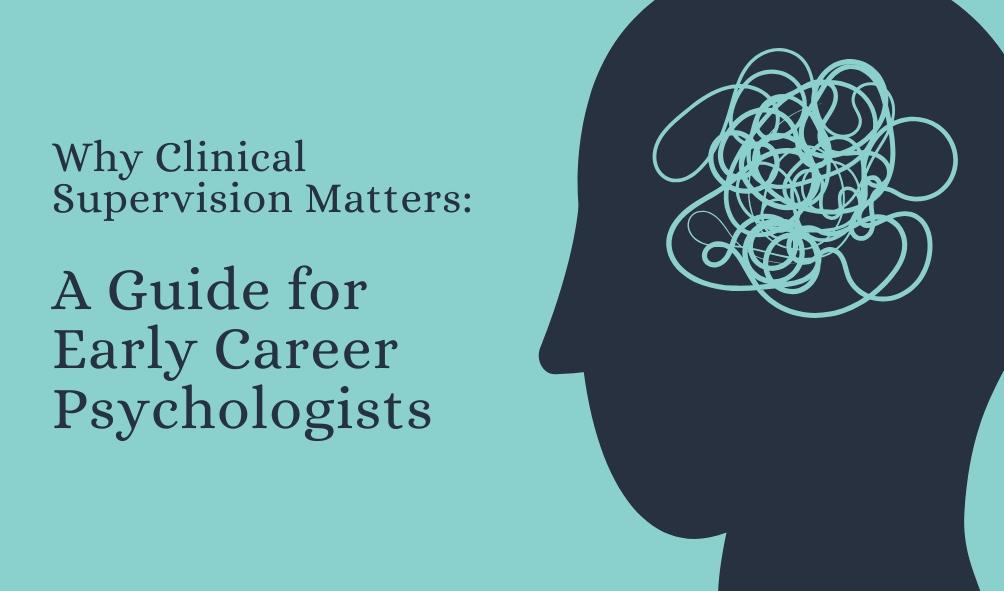For early career psychologists, the transition from training into clinical practice is marked by a series of challenges—technical, ethical, emotional, and relational. Even with a solid academic foundation, the experience of sitting with a patient often raises more questions than answers. Clinical supervision is not simply a regulatory requirement; it is the space where practice begins to take shape.
In psychoanalytic terms, supervision is not a form of instruction or performance assessment, but a reflective practice where the position of the clinician is placed under question. It offers a space to think—not only about the patient—but about how the psychologist is implicated in what emerges in the clinic.
Whether you are pursuing general registration, undertaking a registrar program, or looking to deepen your work with complex presentations, psychology supervision in Melbourne plays a pivotal role in shaping your clinical orientation.
What Clinical Supervision Looks Like
Clinical supervision varies widely depending on the supervisor’s approach and the supervisee’s needs. At its best, supervision offers containment, clarity, and ethical grounding. For early career psychologists, it provides the chance to explore clinical material in a setting that welcomes uncertainty.
A typical supervision session may include:
- Discussion of patient material (with attention to transference, countertransference, and affect)
- Ethical dilemmas or boundary issues
- Diagnostic formulation and treatment planning
- Reflections on the psychologist’s own emotional responses
- Support with documentation, professional identity, and career development
But beyond content, the form of supervision matters. Is the space permissive of not-knowing? Does it offer a pause before interpretation? Does it allow the clinician to hear their own assumptions and resistances? These are essential elements in psychoanalytic supervision.
The Benefits of Psychoanalytic Supervision

In psychoanalytic supervision, the focus is not only on what the psychologist does, but on how they are subjectively positioned within the clinical relationship. The analyst is not outside the transference, but inside it. Supervision, therefore, becomes a space to reflect on how one listens, where one intervenes, and what unconscious elements may be structuring the encounter.
Some benefits of this orientation include:
- Greater tolerance of ambiguity and complexity
- Deeper understanding of transference dynamics
- Heightened sensitivity to unconscious processes, both in the patient and the clinician
- An ethical commitment to the singularity of each case
- The opportunity to locate oneself as a subject within the work
Rather than seeking to standardise care, psychoanalytic supervision fosters clinical curiosity, ethical responsibility, and symbolic listening—qualities essential for any psychologist committed to long-term therapeutic work.
Bita Psychology’s Supervision Offering
At Bita Psychology, we offer supervision for psychologists in Melbourne that is grounded in psychoanalytic and psychodynamic traditions. Whether you are on the 4+2, 5+1, or registrar pathway, or seeking post-registration reflective practice, our supervision is tailored to your clinical work.
Supervision is offered by a board-approved principal supervisor with years of experience in both public and private settings, including work with complex trauma, addiction, personality structure, and psychosis. The orientation draws on the work of Freud, Lacan, and contemporary analytic thinkers, always with attention to the particularity of each case and each clinician.
What distinguishes our approach is:
- A commitment to fostering your own clinical voice and style
- Attention to language, silence, and what remains unsaid in sessions
- Consideration of your position in transference/countertransference
- Respect for the tension between theory and lived clinical experience
Supervision may also include support in preparing for the National Psychology Exam, case reports, ethics interviews, and navigating professional identity as an early career psychologist.
How to Apply for Supervision
If you are a psychologist in Melbourne or working remotely, you can access supervision either in person (Hawthorn or Belgrave) or online. We offer supervision to:
- Provisional psychologists (4+2 and 5+1 pathways)
- Registered psychologists on the clinical registrar program
- Practitioners seeking secondary consultation or psychoanalytic listening
To request supervision please book here: and you may include any specific areas of interest or challenges you’re encountering.
Conclusion: Supervision as Ongoing Formation
Supervision is not only a checkpoint on the way to registration—it is a practice of thought. For the early career psychologist, it is a place to slow down, reflect, and begin to work through the inevitable questions that arise in the encounter with the other.
In the psychoanalytic tradition, supervision is not about knowing more, but about learning how to listen differently to your patient, to your own speech, and to the silence in between.
If you are looking for psychology supervision in Melbourne that values depth, ethical thought, and clinical nuance, you are invited to get in touch.
